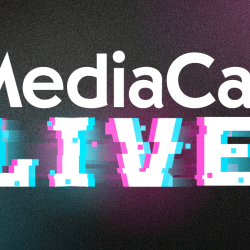Two studies published in the past week clearly show that AI-generated summaries at the top of search results drastically reduce clicks. In many cases, they end the browsing session entirely.
New research from analytics firm Authoritas found that websites which previously ranked first in a Google search lost an average of 79% of traffic when AI Overviews appeared above them. According to The Guardian, the study is now part of a legal complaint submitted to the UK’s competition watchdog by the Independent Publishers Alliance and others.
Another damning dataset from the Pew Research Center shows that just 8% of users who encountered an AI Overview on Google clicked on any traditional link, half the rate of those who did not see an AI summary. Even more strikingly, users clicked on a link within the AI summary just 1% of the time.
AI summaries are also more likely to stop browsing altogether. On pages with AI Overviews, 26% of sessions ended immediately, compared with just 16% on regular search results.
Google has publicly pushed back on both studies, calling them flawed and inaccurate. It insists that search still sends ‘billions of clicks to websites every day.’ This is evidently true, it still has an 89.5% share of the search engine market after all, but the question is to what extent are AI Overviews replacing traditional search and what happens when they do?
The two aforementioned datasets are not outliers. Multiple studies show that AI Overviews, now reaching more than two billion users every month, are increasingly satisfying queries with zero clicks.
The Authoritas and Pew reports also revealed Google’s reliance on a shallow pool of megasites like YouTube, Wikipedia and Reddit for its AI summaries — the same sites already dominating chatbot referrals elsewhere.
Google insists that AI won’t break the ecosystem, and that if publishers just play by the familiar rules, they’ll stay in the game.
New features like Offerwall, which gives publishers more options to monetise content, are part of the same pacifying strategy. It’s a soft anaesthetic designed to soothe panic. The message is clear; nothing’s broken, just evolving.
But this is a fantasy, and inside Google, they know it. Publishers are simply collateral damage in the war to win AI dominance.
A summary from an October 2024 strategy meeting — published as part of a court case — involving senior Alphabet executives Liz Reid, Vidhya Srinivasan, and Nick Fox makes clear the calculus that the company is weighing.
‘We have three options,’ said Fox, who took over as head of search that same month. ‘(1) Search doesn’t erode. (2) We lose Search traffic to Gemini. (3) We lose Search traffic to ChatGPT. (1) is preferred, but the worst case is (3), so we should support (2).’
Alphabet’s Q2 earnings report suggests option two is working, at least in the short term. Google Search brought in $54.19 billion, a 12% year-on-year increase, while overall advertising revenue hit $71.34 billion.
But the market reaction to the latest earnings was underwhelming. Alphabet shares rose just 2% in the hours after results, a tepid response to otherwise strong numbers. Investors seem to agree with Google execs’ internal discussions: this can’t last.
Capital expenditure tells the real story. Alphabet recently hiked its 2025 spending forecast by $10 billion, bringing the total to a record $85 billion — more than 60% higher than last year. Much of that is being poured into AI infrastructure, a signal that the company believes its hegemonic existence now hinges on metamorphising from the search engine into the AI company.
But there’s a growing disconnect between this sky-high AI spending and the returns it’s meant to generate. Analyst Ian Whittaker coolly noted that ‘spending on AI just keeps going up and up’ yet they are ‘not seeing any real material impact on revenue growth for now’.
Google is not alone in this splurge. The entire Magnificent Seven (with the possible exception of Apple) are all in on AI. According to journalist Ed Zitron, by the end of 2025 they will have spent more than $560 billion on AI in two years. The revenue generated from this investment will stand at just $35 billion. Investors are eager for the fruits of the promised revolution.
Harder skeptics see clear signs of a 2000s-style dotcom bubble. Zitron, in his widely shared ‘The Hater’s Guide to AI Bubble’ blog post, argues that we’re already mid-hype cycle, with little to show for it. LLMs, he says, are bloated prediction engines with effective but limited use cases — not revolutionary tools worthy of trillion-dollar bets. Dissent from the AI narrative, once fringe, is now breaking into the mainstream.
Meanwhile, publishers, long totally reliant on Google for visibility and traffic, are scrambling for an alternative. Some are experimenting with so-called ‘hedged gardens’, others are taking the fight to the courtroom. The rest are leaning into AI, licensing their archives for a fee and hoping to survive the tsunami.
None of the approaches offers a clear route forward. Google remains the gatekeeper of global search and it’s remaking the internet in its image as it chases down ChatGPT (which currently has five times more users than Gemini). Project Mariner will soon browse the web for users, AI summaries are increasingly replacing news stories in Google Discover and the next wave of Android software is rammed with AI features by default.
The colossal investment, as well as the tech world’s assertion that we are on the verge of a societal quantum leap, demands that Google stops at nothing to become the company that controls the omnipotent tech of tomorrow.
No one — not publishers, not investors, not regulators, not even Google — knows what the endpoint looks like. What is certain is that this isn’t a temporary disruption. The business model of the open web is being dismantled in real time. Publishers clinging to it will soon have nothing left to grip.
Main image by Matze Bob on Unsplash.



























